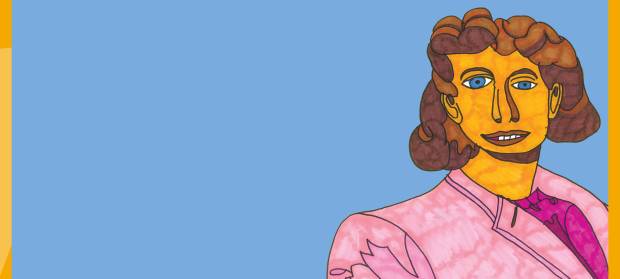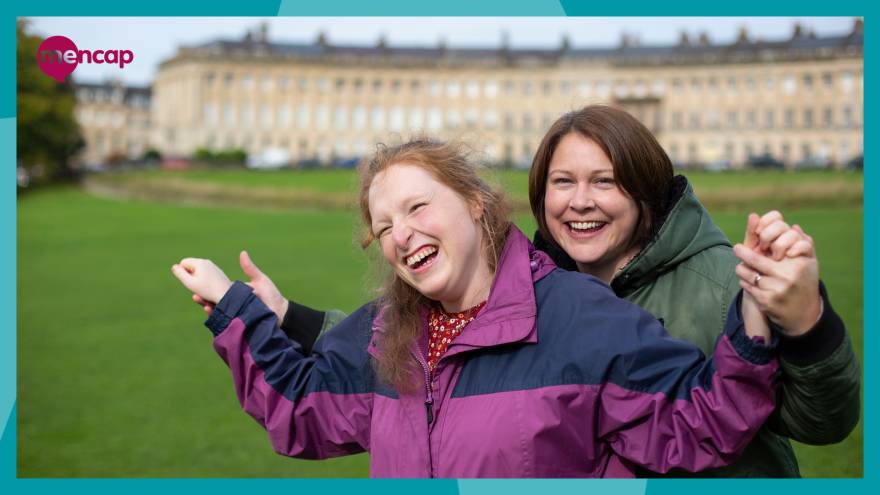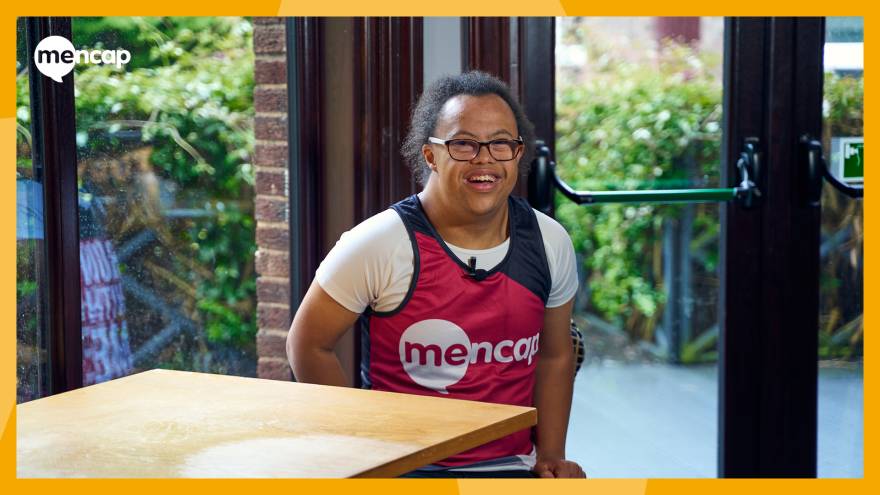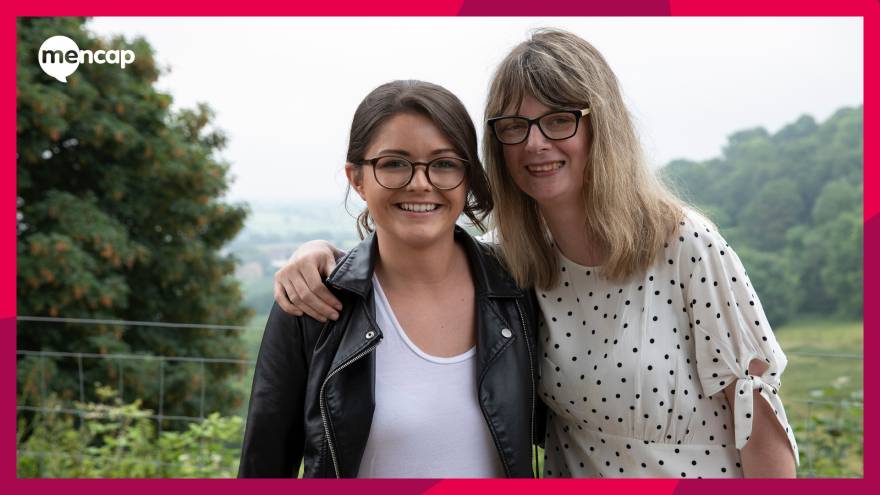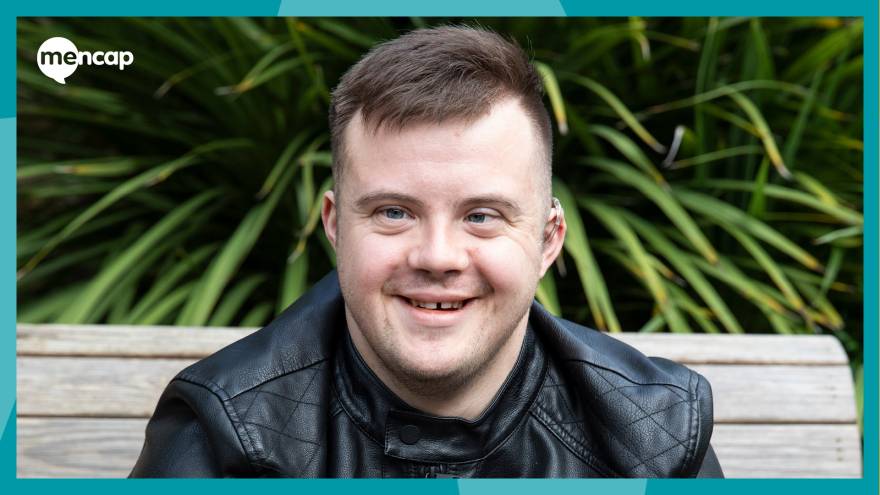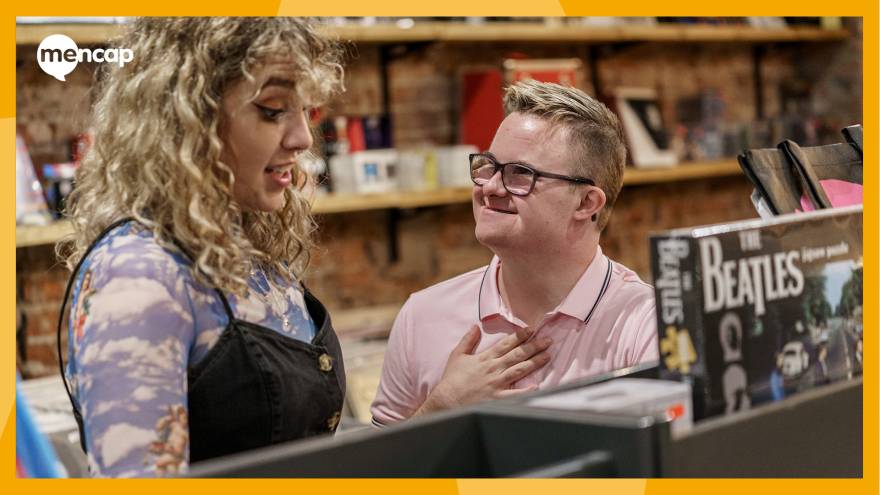Talk To Me
Through our ‘Talk To Me’
campaign
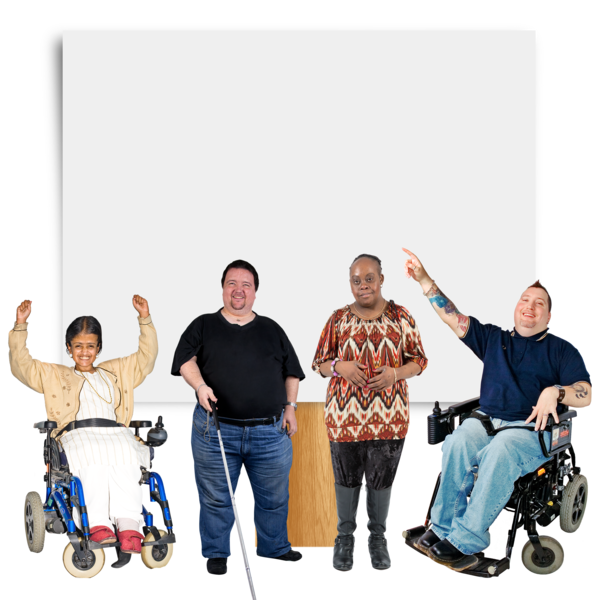 A campaign is when people work together to try to change something.
we want to highlight the need for greater progression, understanding and inclusion of people with a
learning disability
A campaign is when people work together to try to change something.
we want to highlight the need for greater progression, understanding and inclusion of people with a
learning disability
 A learning disability is to do with the way someone's brain works. It makes it harder for someone to learn, understand or do things.
.
A learning disability is to do with the way someone's brain works. It makes it harder for someone to learn, understand or do things.
.
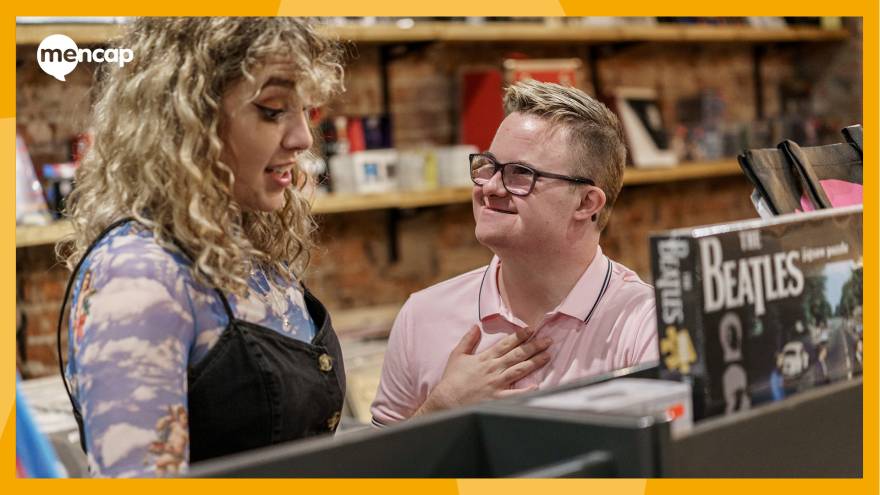
As part of our 75th anniversary, we commissioned some research about perceptions of the1.5 million people in the UK who have a learning disability.
Two thirds of people in the UK do not know what a learning disability is.
40% of people surveyed thought dyslexia was a learning disability.
28% thought a learning disability related to a mental health issue.
Talk To Me
For our Talk To Me campaign we have pulled together some amazing tools and online resources to help people better understand learning disability.
Ways to get involved
We've got loads of great ways for you to get involved with our 75th!
Quiz
So, you want to find out more about what a learning disability is and educate yourself. GO YOU, and thank you.
First off, why don’t you take a quick quiz to test your knowledge of what a learning disability is? Go on, it’ll only take a couple of minutes. Head here to give it a go, and good luck!
Sign our pledge
A
pledge
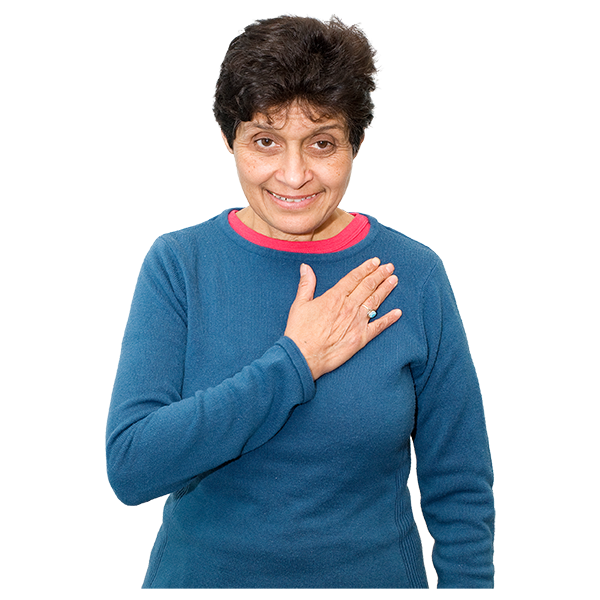 A pledge is when someone promises to do something.
is like a promise. Add your name here to Mencap’s pledge to educate yourself about what a learning disability is, learn more about how you can talk to people with a learning disability and make the UK to be the best place in the world for people with a learning disability to live happy and healthy lives.
A pledge is when someone promises to do something.
is like a promise. Add your name here to Mencap’s pledge to educate yourself about what a learning disability is, learn more about how you can talk to people with a learning disability and make the UK to be the best place in the world for people with a learning disability to live happy and healthy lives.
Request a craftivism pack
Activism
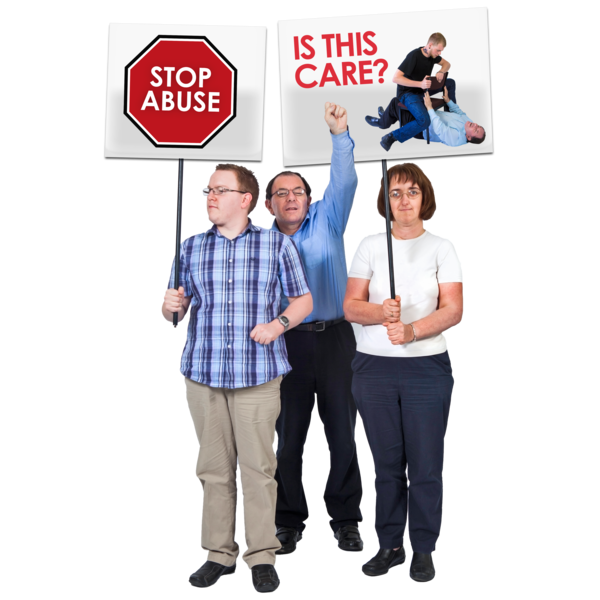 Activism is taking action to make change. Going to a campaign event with others, writing letters and speaking up are all ways to take action.
+ craft = Craftivism! We've got templates and instructions to get you started with hosting your own craftivism session, bringing your voice to our fun and colourful bunting flags. Find out more here
Activism is taking action to make change. Going to a campaign event with others, writing letters and speaking up are all ways to take action.
+ craft = Craftivism! We've got templates and instructions to get you started with hosting your own craftivism session, bringing your voice to our fun and colourful bunting flags. Find out more here
Mencap’s definition of a learning disability
With our
survey
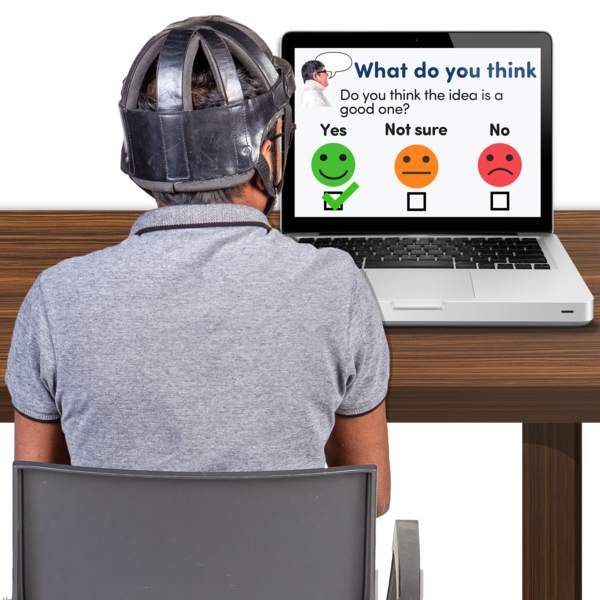 A survey is when someone asks you to answer some questions.
revealing that two thirds of people in the UK don’t know what a learning disability is, we wanted to make it really easy to find out and understand:
A survey is when someone asks you to answer some questions.
revealing that two thirds of people in the UK don’t know what a learning disability is, we wanted to make it really easy to find out and understand:
A learning disability is
A learning disability is a reduced intellectual ability which means that people might need support with everyday tasks – for example shopping and cooking, or travelling to new places. It is usually diagnosed around birth or in early years and affects someone for their whole life.
Learning disability is NOT
Learning disability is NOT a mental illness or a learning difficulty, such as
dyslexia
 Dyslexia is a learning difficulty. People who have dyslexia can find it hard to read, write and spell.
. Very often the term ‘learning difficulty’ is wrongly used interchangeably with ‘learning disability’.
Dyslexia is a learning difficulty. People who have dyslexia can find it hard to read, write and spell.
. Very often the term ‘learning difficulty’ is wrongly used interchangeably with ‘learning disability’.
About learning disability
People with a learning disability can take longer to learn new things and may need support to develop new skills, understand difficult information and engage with other people. The level of support someone needs is different with every individual. For example, someone with a severe learning disability might need much more support with daily tasks than someone with a mild learning disability.
Having a learning disability
We spoke to some of the
community
 A community is the people and places in an area.
about what having a learning disability means to them. Watch this video made in 2019, of Vijay, James, Leroy, Amy and Emily explaining.
A community is the people and places in an area.
about what having a learning disability means to them. Watch this video made in 2019, of Vijay, James, Leroy, Amy and Emily explaining.
Our 75th birthday
Over the last seven and a half decades we have worked hard to ensure people with a learning disability become more visible and active in society, but even today there is still a need for further progress.
Judy Fryd
Judy Fryd kick-started the movement to create change for people with a learning disability, and eventually the creation of Mencap.
This wonderful image was created by Caroline who is supported in her home by Mencap.
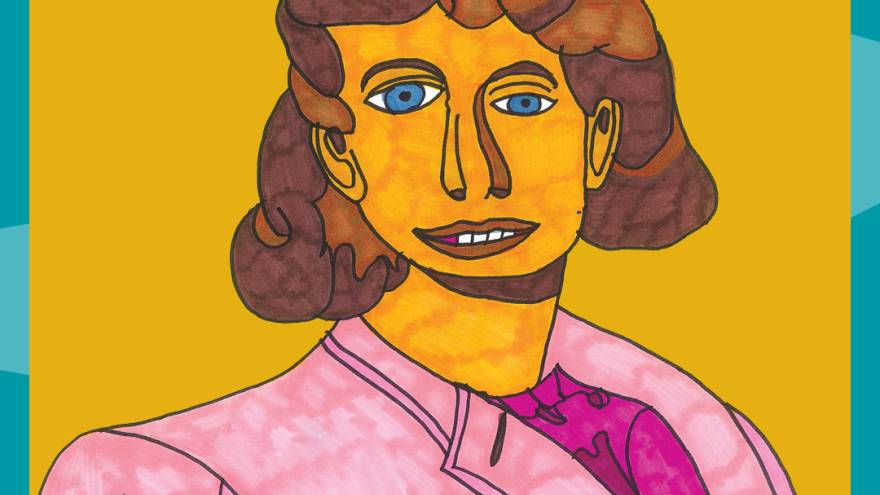
Our history
Take a look back with us to uncover the key milestones in Mencap's rich history, and get a glimpse of the fight for equal
rights
 Rights are the things everyone should be allowed to do like have a say, or go to school.
and opportunities for people with a learning disability that we have been part of over the last 75 years –
Rights are the things everyone should be allowed to do like have a say, or go to school.
and opportunities for people with a learning disability that we have been part of over the last 75 years –
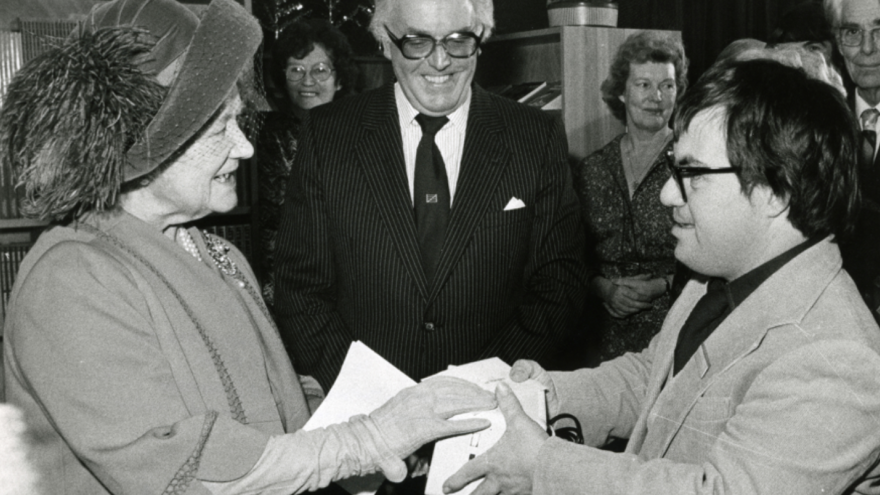
Let’s talk about communication!
When you’re communicating with someone with a learning disability, you should think about the tone of your voice and your body language, as well as the words you use.
